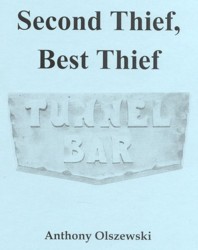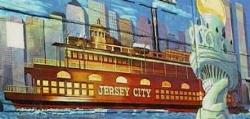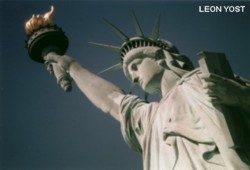Q. Did you conduct an investigation to determine
where that money went, that $155,000?
A. Yes, we did.
Q. Would you explain, please, the disbursements
from that account covering that sum of money?
A. Yes. We found that the Eastern Supply Company was paid two checks, one for $13,500 and one for
$15,660.
Q. Did you ever examine any documents to support
that transaction?
A. Yes, sir, we did.
Q. Were they provided to you by the Mosquito
Commission?
A. No, no, sir, they were not.
Q. Where did you get the documents?
A. In general, we got the documents from the
suppliers, the alleged suppliers.
Q. I'm directing my question, now, to the Eastern
Supply Company.
A. Yes.
Q. Where did you get the documents to explain the
payment o f $29,160 to Eastern Supply Company?
A. From Mr. Milton Reid.
Q. Did you attempt to get the supporting documents from. Harry Callari?
A. He had no documents, sir.
Q. Were these the documents that disappeared?
A. Yes, sir, that's right.
Q. All right. What did the documents show?
A. In regard to Eastern Supply?
Q. Eastern Supply.
A. In regard to Eastern Supply, it was ascertained
that one check for $13,500 was allegedly spent for
spraying of the Secaucus meadows by helicopter.
Q. This thirteen-thousand-some-odd dollars was
paid to Eastern Supply for spraying?
A. That's right, yes.
Q. Did Eastern Supply, according to its records,
actually do the spraying itself?
A. No, sir, it did not.
Q. Did they hire someone else to do it?
A. They did, yes.
Q. According to their records what did it cost them
to hire someone to do it?
A. $2,700.
Q. Yet they were paid in excess of $13,000?
A. That's correct, yes, sir.
Q. Now, what was the other check made payable to
Eastern Supply?
A. That was for some spraying material. It's Baytex, some sort of chemical with the trade name of
Baytex. It is particularly effective, I understand, in
this type of work.
. . .
Q. Sorry, Mr. Cayson. You were explaining the –
A. Yes.
Q. – purchase of Baytex?
A. That's right. And we found here that $15,660
was paid for the Baytex. 24,000 pounds was supposed
to be delivered. There was actually a delivery of only
20,000 pounds, that is, the Mosquito Commission was
shortshipped, as we call it, 4,000 pounds and the
supplier was paid some $5,850.
Q. What did the Mosquito Commission pay for this
material?
A. $15,660.
Q. What did it cost Eastern Supply?
A. $5,050.
Q. All right. Lehigh Truck.
A. In regard to Lehigh Truck, sir, there will be
other testimony later in regard to that. I can only say
for now that we examined the books and records of
Lehigh Truck, and their gross receipts in the past two
or three years does not exceed $4,000, which will
obviously, to my mind, indicate that they never got
$28,104.
Q. Royal Mart.
A. In regard to Royal Mart, we find that this is the
one legitimate transaction in this whole schedule. It
refers to some dehumidifiers which were delivered to
the Mosquito Control Commission.
Q. That's $437?
A. That's correct, yes.
Q. D. T. Rossillo Trucking.
A. D. T. Rossillo is a trucking company which has
done substantial sub-contracting work for Benron,
and again I would care not to make any further
elaborations at this time.
Q. How about United Marine Construction?
A. United Marine Construction is a company which
was formed one month before they received a contract
from the Hudson County Mosquito Extermination
Commission. We have found upon examination of
United Marine's books that they have three executive
officers and one employee and 100% of their funds are
received from the Mosquito Control Commission.
Q. Damar Salvage & Hauling; they received $60,000
I see here?
A. That's right. Damar Salvage & Hauling, as far
as our investigation can determine, was used merely
as a conduit of funds for money emanating from the
corporation that allegedly operated an illegal dumping site in Hudson County.
Q. What's that corporation?
A. The Duncan Land Reclamation Company.
. . .
Q. Directing your attention, to the payment of
$60,000 to Damar Salvage & Hauling, were any interviews conducted of any of the corporate officers of
Damar Salvage & Hauling to determine what that
$60,000 was for and where it went?
A. Yes, sir.
Q. Briefly, would you relate the details?
A. Without going into extreme detail, in regard to
the $60,000 the procedure would be-was that these
checks and others would be taken to a particular
bank. The checks were cashed.
Q. By whom?
A. By a gentleman by the name of John Marcillio.
Q. Was he interviewed?
A. He was, yes, sir.
Q. What did he say.?
A. He said that he took these and other cheeks to a
particular bank and the checks were cashed.
Q. Who cashed then?
A. He did.
Q. What did he do with the cash?
A. He gave it to a gentleman by the name of James
Ruffo.
Q. Or is that Joseph Ruffo?
A. I'm sorry. Joseph Ruffo.
Q. Did he tell you what Ruffo did with the money?
A. Yes. The only thing he said, that lie would see
Mr. Ruffo then take the money down to the address
of the Hudson County Mosquito Commission on
Duncan Avenue.
Q. Did he say he saw him go into the building with
the money?
A. He did.
Q. Where was he at this time?
A. He was on the dump site on Duncan Avenue.
Q. Where is that in relation to the Mosquito Commission building?
A. Approximately one-half mile up from the building.
Q. Ralph Grasso, I see, received $3,000. Who is
Ralph Grasso.
A. Ralph Grasso is the county engineer assigned to
the Hudson County Mosquito Control Commission.
Q. Were you able to determine why he received
$3,000?
A. No, sir, I don't. No, I did not, no, sir.
Q. Mr. Cayson, what percentage of the total expenditures does your investigation classify or– no.
Strike that, please.
Q. What percentage of the total expenditures of this
Josquito Con mission would you classify as questionable in nature as a result of your investigation?
A. Of the secret account, sir?
Q. Yes.
A. 99.3 %.
Q. Did you make a similar percentage determination in regard to the known and existing special
account for capital improvements?
A. Yes, sir.
Q. What is your opinion on that?
A. «-e find 72;c of expenditures were of a
questionable nature.
Q. What's the basis for this opinion, sir?
A. Well, we have found, for instance, that the bulk
of the work was done by certain companies. These
companies are as follows : Meadow land Contractors
of which one Mario Gallo, until he died last year, was
the president; Cityline Contractors; D. T. Rossillo;
Benron; Emory, and Bellezza Brothers.
Q. Do you know who the principal officers of Einory
are?
A. Yes, sir.
Q. Who are they?
A. Ben and Ronnie Callari. They own all the stock.
Q. Would you repeat that answer, Mr. Cayson? I
didn't hear you.
A. Benjamin and Ronnie Callari own all the stock
of it.
Q. Are they related to Mr. Callari of the Mosquito
Control Corn mission?
A. Yes, sir, they are.
Q. What are they?
A. They are his sons.
Q. Continue.
A. Yes. We found that the principal contractors
employed by the Hudson County Mosquito Commission paid Benron substantial sums of money as
follows: City Line, $20,580; Meadowla.nd, S49,850.
Q. And again to recap, who are the principal stockholders of Benron?
A. Ben and Ronnie Callari.
Q. What was questionable about the Emory
transactions?
A. Well, the Emory transactions we find as follows
that a company by the name of Bellezza, which had a
contract with the Hudson County Mosquito Commission, paid Emory $53,990 and Meadowland, Mr. Mario
Gallo's firm, paid $30,000. We found that the Hudson
County Mosquito Extermination Commission also
paid $28,985 and $9,870 directly to Emory.
Q. Have you made a determination as to how much
money was withdrawn from the Benron Corporation
by Callari or his relatives?
A. Yes, sir.
Q. How much?
A. $40,770.
Q. Over what time period is this, Mr. Cayson?
A. This is approximately two and a half years.
Q. How about Emory?
A. $76,818.
Q. Over what period of time?
A. Approximately three years ; three, three and a
half years.
Q. To your knowledge do either the Benron Corporation or the Emory Construction Company own any
heavy consruction equipment?
A. As far as the records I received from their
particular accountants, they have none, no.
Q. What equipment do they own, if any?
A. They have three automobiles.
Q. What's the value of the automobiles?
A. $9,830.
Q. Has Emory ever received a major contract from
the Hudson County Mosquito Commission?
A. Yes, sir, they have.
Q. In what amount?
A. $29,985.
Q. And what was that contract for?
A. For the purchase of some pumps to be used out
in the meadows.
Q. What were they paid for the pumps?
A. Who, sir?
Q. Well, would you explain the transaction?
A. Oh, yes. The Mosquito Commission got a quote
for the pumps of $17,125. Then by a series of correspondence the contract for the purchase of the pumps was subsequently assigned to Emory, and Emory, in
fact, bought the pumps, as far as we can ascertain
from examination of their books and records.
Q. Have those pumps been located?
A. The investigators in going into the field ascertained that two of the pumps are in place and one is
not.
Q. Missing?
A. That's right.
Q. Have you made a determination as to whether
or not there are any questionable expenditures in the
general operating account?
A. Yes, sir, we have.
Q. What percentage would be questionable?
A. With the exclusion of-we excluded salaries
because we did not go into any payroll analysis. The
answer would be 28%.
Q. What do you base this percentage on?
A. We base that percentage on the fact that the
same suppliers in general who we have referred to
in the special account also got paid out of the general
account.
Q. All right. By way of recapitulation, would you
again state for the record the name of the account you
are referring to and what percentage o f the transactions you find questionable?
A. And the amount of money?
Q. And the amount of money.
A. Right. Out of the general account, 28% for a
total of $201,637; 28%, $201,637. Out of the special
account, 72% for $361,307; $361,307. And, of course,
out of the secret account 99.3% questionable for a
total of $154,584.
The grand total of this money is $717,528.
















